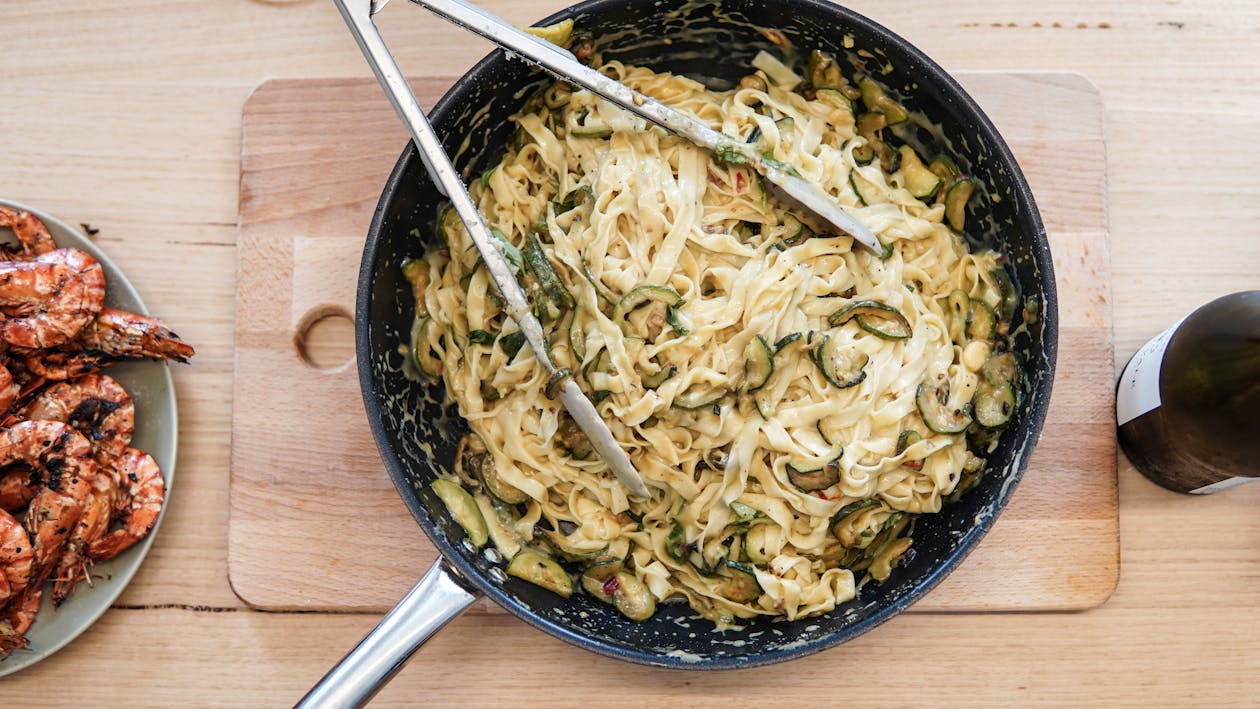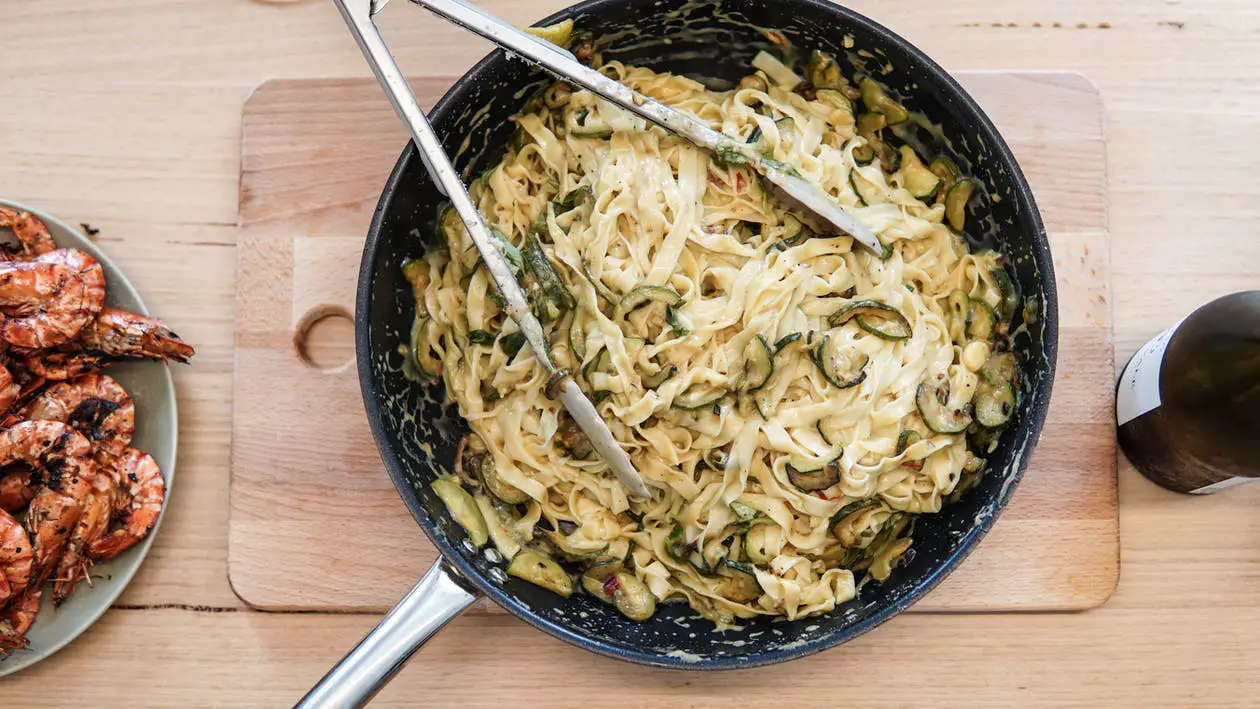Cast iron: The advantages and disadvantages
Cast iron pans and skillets have been around for centuries. Though they've gone out of style for a while, they're making a comeback now because of all the advantages they offer. However, there are some disadvantages to cast iron that you should be aware of before investing in one. Let's take a closer look at both the pros and cons of cast iron cookware.

Advantages
Cast iron is durable and lasts a long time.
Cast iron is a material that has been used for centuries, and for a good reason. It is incredibly durable, meaning it can withstand a lot of wear and tear. It is also very long-lasting, meaning it will not need to be replaced as often as other materials. Additionally, cast iron is very easy to care for. It does not rust or corrode easily, and it is very tolerant of high temperatures. As a result, cast iron cookware is an excellent choice for those who want to invest in quality kitchenware that will last for years to come.
It is inexpensive compared to other materials.
Cast iron is relatively inexpensive compared to other materials such as copper or stainless steel. For those on a tight budget, cast iron offers an excellent option for outfitting a kitchen with quality cookware. In addition, cast iron is virtually indestructible, meaning that it will last for generations with proper care. For those looking for an affordable and long-lasting option, cast iron is the way to go.
It heats evenly and slowly, making it ideal for cooking.
One of the advantages of cast iron is that it heats evenly and slowly. This makes it ideal for cooking, as it ensures that food will be cooked thoroughly and evenly. Additionally, the slow heating process allows food to retain its flavor and nutrients better than with other methods of cooking. For those who want to get the most out of their food, cast iron is the way to go.
It can be used on any cooking surface, including induction cooktops.
Another advantage of cast iron is that it can be used on any cooking surface, including induction cooktops. This means that it is a versatile option for those who want the flexibility to use their cookware on a variety of cooking surfaces. Additionally, cast iron is compatible with all types of heat sources, making it an ideal choice for those who want to use it on the stovetop, in the oven, or even over a campfire.
Cast iron is enameled, meaning it is non-stick.
One of the advantages of cast iron is that it is enameled, meaning it is non-stick. This makes it an excellent choice for those who want to avoid sticking and burning when cooking. Additionally, the enamel coating makes it easier to clean, as it prevents food from sticking to the cookware. For those who want the convenience of non-stick cookware, cast iron is the way to go.
Cast iron is easy to clean.
Another advantage of cast iron is that it is easy to clean. The enamel coating makes it resistant to sticking and staining, and the cookware can be simply washed with soap and water. For those who want an easy-to-clean option, cast iron is the way to go.
Cast iron cookware is heavy and difficult to clean. Follow these steps to clean your cast iron:
If you've just used your cast iron skillet to cook a delicious meal, the thought of cleaning it may not be very appetizing. However, taking care of your cast iron is important if you want it to last for years to come. The first step in cleaning a cast iron skillet is to rinse it with hot water. This will help to remove any food particles that are stuck to the surface. Next, use a mild soap or detergent to scrub the skillet clean. Be sure to rinse away all of the soap before drying the skillet thoroughly. Finally, apply a thin layer of oil to the surface of the skillet to prevent rusting. With a little bit of care, your cast iron skillet will be ready to use again and again.
Cast iron is great for keeping food warm
When it comes to cookware, cast iron has a lot to offer. It's durable, inexpensive, and non-stick, making it a popular choice for both home cooks and professional chefs. However, one of the best things about cast iron is its ability to retain heat. This makes it ideal for cooking foods that need to be kept warm for extended periods of time, such as casseroles and stews. In addition, cast iron holds heat evenly, so there are no hot spots that can cause food to burn. Whether you're cooking for a large crowd or simply want your food to stay warm until you're ready to eat, cast iron is a perfect choice.
Fortifies Food With Iron
Cast iron is one of the most popular materials for cookware, and it's no wonder why. Not only does it distribute heat evenly, but it also fortifies food with iron. When food is cooked in cast iron, a small amount of iron is actually transferred to the food. This is especially beneficial for people who are iron deficient, as cast iron can help to increase their intake of this essential nutrient. In addition, the iron in cast iron cookware helps to prevent rusting and can give the cookware a long lifespan. With all of these benefits, it's no wonder that cast iron has been a favorite material for centuries.
You Can Cook Almost Anything in Cast-Iron Pans
Cast-iron pans are one of the most versatile pieces of cooking equipment you can have in your kitchen. They can be used for everything from frying eggs to baking bread. And because they conduct heat so well, they're perfect for making evenly-cooked meals. Not only that, but cast-iron pans are also durable and easy to care for. With a little bit of care, they can last for generations. So if you're looking for a pan that can do it all, look no further than the trusty cast-iron pan.
Cast iron is a good choice for those who want quality cookware that will last for years to come.
For those who are looking for quality cookware that will last for years to come, cast iron is a good choice. While it has some disadvantages, such as being difficult to clean and requiring special care, its advantages, such as being inexpensive and virtually indestructible, make it a good option for those who want to invest in quality cookware.
Disadvantages
It is a heavy material, making it difficult to lift and move.
One of the disadvantages of cast iron is that it is a heavy material, making it difficult to lift and move. This can be inconvenient for those who want to use their cookware on a variety of surfaces or in different locations. Additionally, the weight of cast iron can make it difficult to store, as it takes up more space than lighter materials. For those who want the flexibility to move their cookware around easily, cast iron may not be the best option.
Cast iron is susceptible to rust and corrosion.
Another disadvantage of cast iron is that it is susceptible to rust and corrosion. This means that it will need to be seasoned regularly to prevent rusting. Additionally, cast iron cookware should not be used on high heat, as this can cause the cookware to warp and become damaged. For those who want to use their cookware on a regular basis, cast iron may not be the best option.
It is sometimes difficult to clean and requires special care.
Another disadvantage of cast iron is that it is difficult to clean and requires special care. This means that it will need to be scrubbed with soap and water after each use. Additionally, cast iron cookware should not be placed in the dishwasher, as this can damage the enamel coating. For those who want the convenience of easy-to-clean cookware, cast iron may not be the best option.
Cast iron can also be difficult to care for, as they require special cleaning and seasoning procedures. When cleaning a cast iron pan, it is important to avoid using harsh detergents or scrubbers, as these can damage the surface of the pan. Instead, simply wipe the pan down with a damp cloth after each use. If food happens to stick to the pan, soak it in hot water for a few minutes before wiping it clean. Seasoning is also important for maintaining a cast iron pan. This process helps to create a protective layer that prevents rust and makes the surface of the pan more non-stick. To season a cast iron pan, simply rub it down with a thin layer of oil and bake it in a 350-degree oven for about an hour. With proper care, a cast iron pan can last for generations.
If you're on the fence about investing in a cast iron pan or skillet, hopefully this article has helped you make up your mind. Cast iron offers many advantages that other materials can't beat, but it does have some disadvantages too. Ultimately, it's up to you to decide if the pros outweigh the cons for your own cooking needs. Have you ever used a cast iron pan? What are your thoughts?
Visit our catalog for high-quality cast iron cleaning tools.

